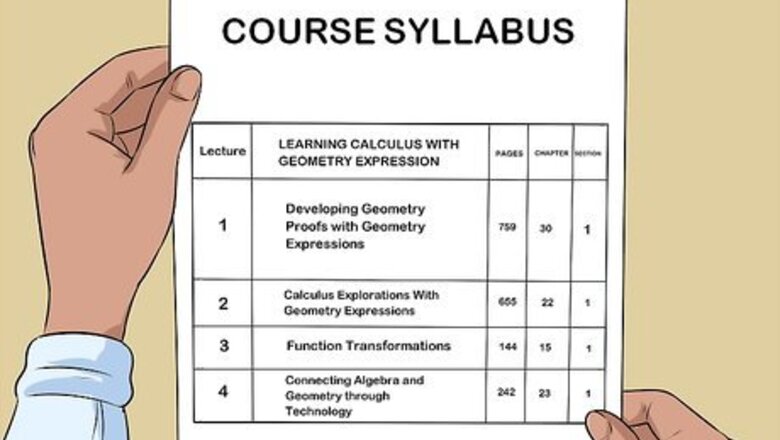
views
Making a Good First Impression
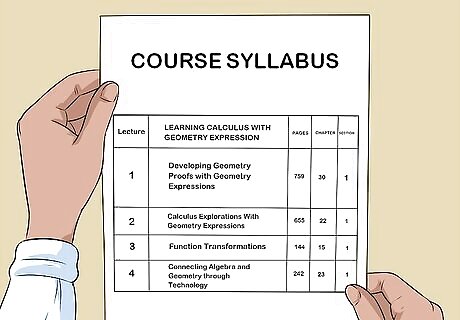
Check the syllabus for the answer first. Often, the question you would like to ask has already been answered in the material the professor has provided at the beginning of class. Asking a professor to go over this again makes you look like you are not a serious student, and it frustrates the professor because it wastes their time. Your syllabus may contain information about course assignments, deadlines, class policies, and assignment formatting. If your professor only gives you a list of readings, it's fine to email them with a question that isn't answered in the syllabus.
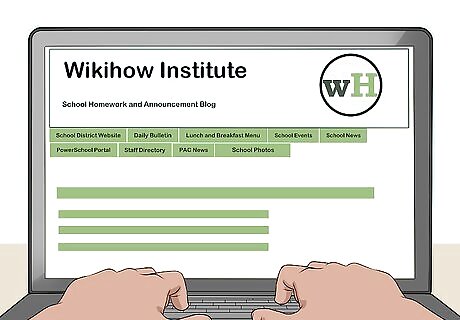
Use your academic account. Professors are deluged with emails every day. By using your school account, you'll have a better chance of avoiding the spam filter. Plus, your school email looks more professional. It also lets the professor know who's actually sending the email, as school emails are usually based on your name.
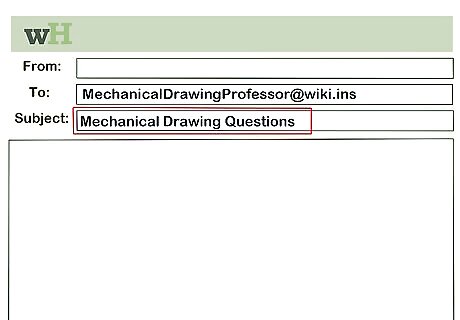
Include a strong subject line. A subject line clues your professor in to what the email is about before they open it. That can be helpful because they can set aside an appropriate amount of time to deal with it. Make sure the subject line is clear and to the point. For instance, you could write "Question about Current Assignment" or "Final Essay."
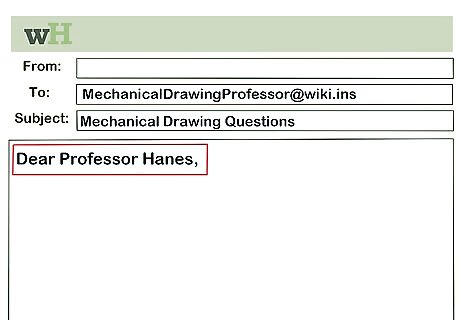
Start with a greeting using the professor's title and surname. It can be tempting to just plunge into your request. However, when you're writing to a professor, you need to treat it more like you would a formal letter. Begin with "Dear Dr. Jones," followed by a comma. Make sure to use the professor's last name. If you're not sure if the professor has a doctorate, you can address them as "Professor Jones." You can use a bit more informal greeting, such as "Hello Dr. Jones," if you've had personal interactions with the professor.
Creating the Content of the Email
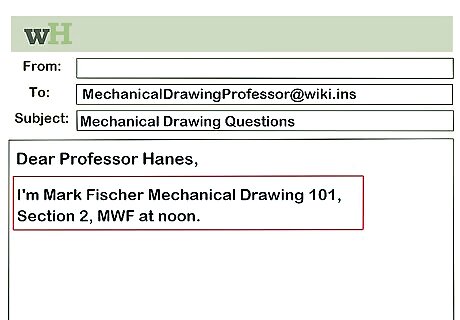
Remind the professor who you are. Professors have many students to keep track of, and they'll need to be reminded of who you are. Say your name, as well as the class you have with the professor, including the specific class period, such as "MWF at noon."
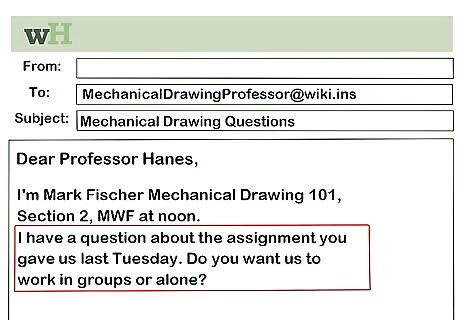
Stick to the point. Professors are busy people, so you don't want to drag out your email. Say what you need to say as briefly as possible, leaving out any extraneous details. For instance, if you have a question about an assignment, get to the point: "I have a question about the assignment you gave us last Tuesday. Do you want us to work in groups or alone?"
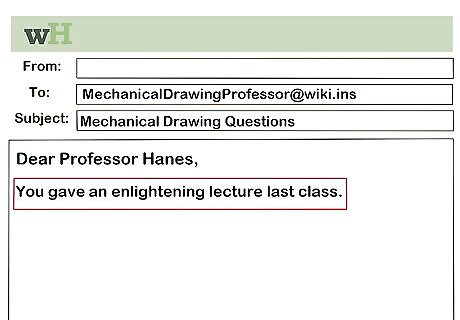
Write in complete sentences. This email is not a Facebook post or a text to a friend. That means you need to use complete sentences when writing to your professor, as anything less does not look professional. For instance, don't write, "Awesome class, man... stellar!" Instead, write, "You gave an enlightening lecture last class."
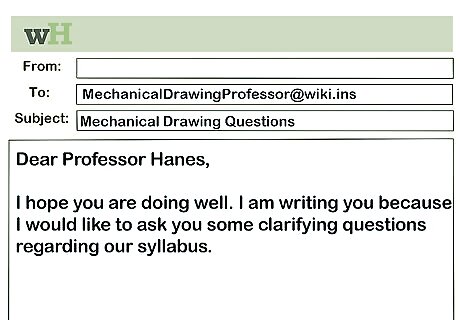
Work on tone. When you're first contacting a professor, keep your tone and language very professional. That means no emojis! If you develop a correspondence with your professor, you may find that you can get a bit more relaxed as the semester goes on. That's particularly true if your professor initiates a bit of informality (such as by sending an emoji in an email to you).
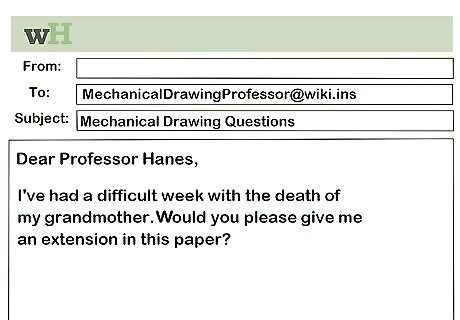
Make requests politely. Many students try to demand things from their professors. That will get you nowhere. Instead, phrase your issue as a request that the professor can grant or not. For instance, you may want the professor to give you an extension on a paper. Don't say, "My grandmother died. Give me an extension on this paper." Rather, say, "I've had a difficult week with the death of my grandmother. Would you please give me an extension on this paper?"
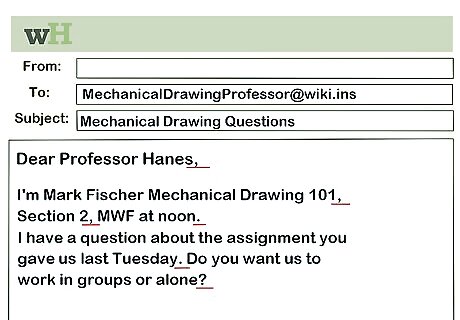
Use proper punctuation. In an email to a friend, it may be fine to skip over periods and commas. However, when you're writing to your professor, make sure you are using punctuation where you should.
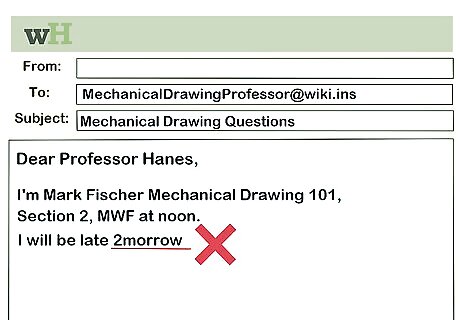
Spell out words. As much as text language is taking over the internet, professional emails are one place where you should leave it behind. That is, don't use "u" in place of "you," or "2morrow" in place of "tomorrow." Use proper spellings. Don't forget to run your email through spellcheck.
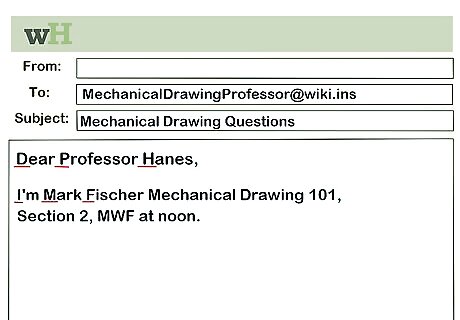
Capitalize words appropriately. Words at the beginning of sentences should be capitalized, as should proper nouns. Don't slip into text speak where you selectively capitalize words. Make sure you are always capitalizing words that need to be capitalized.
Finishing Up Your Email
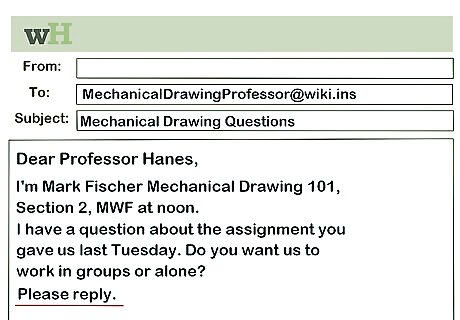
Specify what action you want the professor to take. Make sure you've said exactly what you want from the professor at or near the end of the email. For instance, if you want a reply, let the professor know. If you need to meet with them, make that known as well.
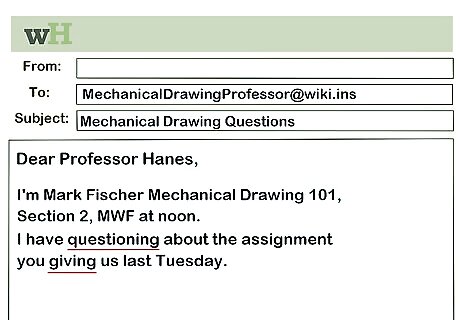
Read over your email for grammar. Go through your email to check for any grammar mistakes. Most of the time, you'll catch a mistake or two you made that you need to correct.
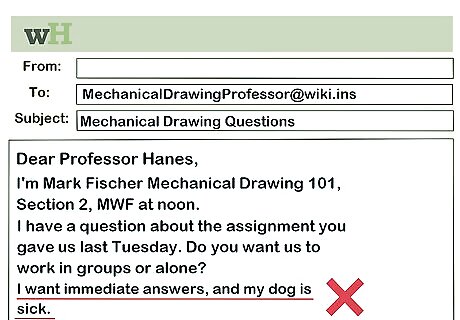
Look the email over from your professor's perspective. Think about the content of the email to make sure you aren't demanding something. Also, make sure it's really as concise as it can be. You don't want to overshare about your personal life, as that's not professional.
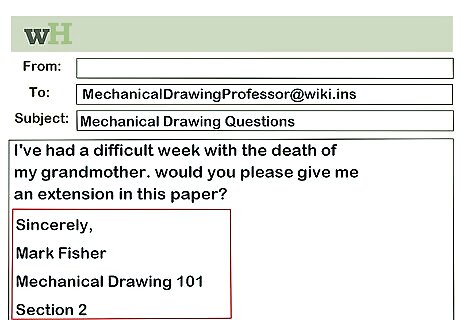
End the email with a salutation. Just like you began the letter formally, you need to end it formally as well. Use a word like "Sincerely" or "Best," followed by a comma and your full name.
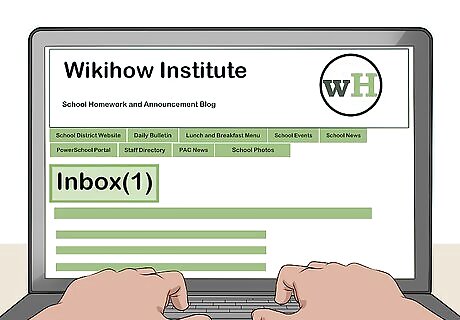
Check back again in a week. Once you've sent the email, you don't want to pester your professor for an answer. However, if you haven't heard back in a week, you can try again, as your email may have been lost in the shuffle.
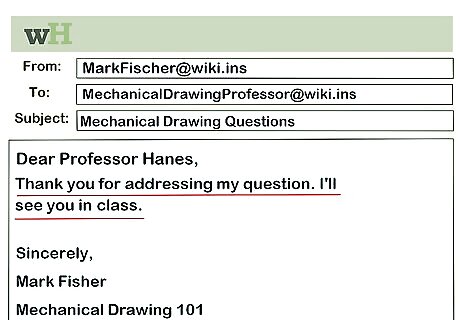
Acknowledge a reply. Once you receive a reply, make sure you acknowledge that you received it. A simple "Thank you" may be enough. If necessary, write a more extensive email using these same guidelines to keep it professional. If your problem or question is not being adequately resolved by email, ask for an appointment to meet in person. For instance, you could say, "Thank you for addressing my question. I'll see you in class." If you'd like to meet, you could write, "I appreciate your thoughts on this issue. Would you mind if we met in person to discuss it in more detail?"




















Comments
0 comment